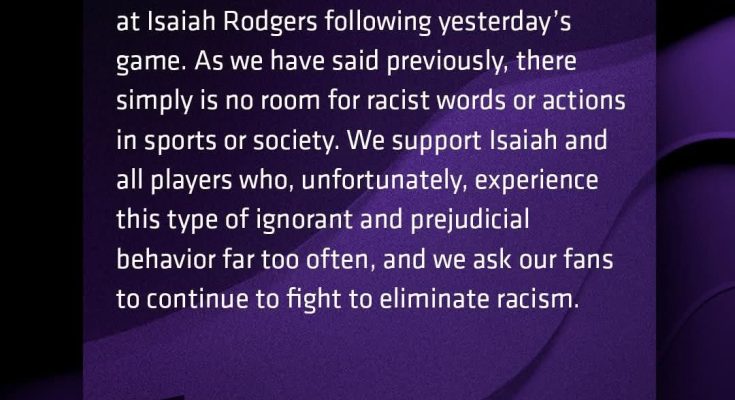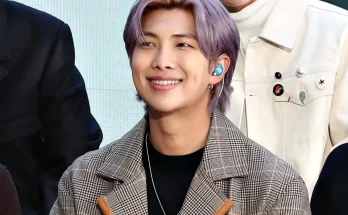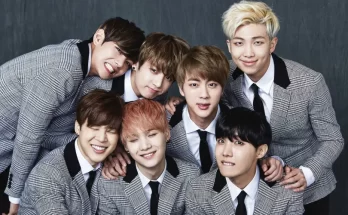The racial epithets hurled at Isaiah Rodgers after yesterday’s game disgust us, and they should disgust anyone who calls themselves a fan of the sport. It’s a moment that forces us to confront the uncomfortable truth that, despite the progress society claims to have made, racism in sports — both overt and subtle — remains alive and well. What should have been a discussion about football, performance, or the next matchup instead turned into a reminder that the ugliest parts of human behavior still find their way into stadiums, locker rooms, and social media feeds. For Isaiah Rodgers, this was not just an attack on his character; it was an assault on his humanity.
Rodgers, like every professional athlete, has dedicated his life to his craft. The long hours, the brutal training, the physical toll, and the psychological weight of competition all define what it takes to compete at the highest level. Yet in one moment, that dedication was reduced by a few hateful individuals to the color of his skin. No player, no matter the outcome of a game, deserves to be targeted in such a vile and dehumanizing manner. The comments hurled at him were not mere words of frustration — they were venom, a window into the persistent disease of racism that stains too much of what surrounds the game we love.
The reaction from Rodgers himself was one of dignity and restraint. He chose not to retaliate with anger or hate but instead allowed his silence to speak volumes. That silence was powerful because it underscored a truth many players of color have long known — that the burden of dealing with racism often falls on the very people it targets. Rodgers did not ask to be a symbol, but through this ugly incident, he has once again been forced into that role, representing countless athletes who have endured the same cruelty, both publicly and privately.
What makes this moment even more heartbreaking is that it isn’t an isolated one. We’ve seen this story unfold before — different names, different teams, but the same despicable pattern. When a Black athlete makes a mistake on the field, misses a play, or has a poor performance, some so-called fans immediately strip away every ounce of humanity and respect they once showed. The love turns into hate, and that hate often reveals itself through racism. It’s not about the game anymore; it’s about bigotry looking for a moment to express itself.
Social media has only made this problem more visible — and in many ways, more dangerous. Platforms like X (formerly Twitter) and Instagram have become battlegrounds where athletes are not just criticized, but targeted. The anonymity of the internet gives cowards a shield to spew their worst impulses without consequence. It’s no surprise that after Rodgers’ team lost the game, racist slurs began circulating online. The words themselves were disgusting, but the sheer volume and speed at which they spread were even more alarming. What should have been a post-game conversation about tactics or turnovers became a cesspool of hate speech.
The team, to its credit, issued a strong statement condemning the abuse. The organization made it clear that racism has no place in their locker room, their fanbase, or their community. But words from a team, while important, cannot heal the deeper wound. This isn’t just about one team or one incident — it’s about a culture that still tolerates, excuses, or minimizes racism in sports. The outrage fades, the statements are released, and then life goes on — until the next time it happens. That cycle must end.
Fans must be part of the solution. It’s not enough to say “that’s terrible” and move on. It’s not enough to claim to love the game but ignore the pain of the players who make it possible. True fans understand that these athletes are human beings — fathers, sons, brothers, and community members — who deserve the same respect and dignity as anyone else. The silence of the majority only empowers the hatred of the few. When racial abuse happens, it’s everyone’s responsibility to speak out, report it, and confront it, whether in a stadium, online, or in conversation.
Rodgers himself represents what’s best about the sport. His resilience, work ethic, and determination have made him a respected player. He’s had his highs and lows, like every athlete, but he’s continued to show up, fight, and contribute to his team. For someone like him to endure this kind of abuse is not only unfair — it’s unacceptable. He plays not just for himself, but for his teammates, for fans, and for the next generation of kids who dream of following in his footsteps. What message does it send to those kids when they see someone like Rodgers treated this way for reasons that have nothing to do with his talent or his effort?
There’s also a broader issue at play here — the way sports culture sometimes enables toxic behavior under the guise of “passion.” We often hear fans justify their actions with phrases like “I was just emotional” or “it’s part of the game.” But there’s a clear line between passion and prejudice, and when that line is crossed, it’s no longer about sportsmanship; it’s about hate. Passion for a team should never come at the expense of another person’s dignity. To love a sport truly means to respect everyone who plays it, regardless of their race, religion, or background.
League officials and governing bodies also bear responsibility. It’s time for stronger measures to combat racist abuse. Banning offenders from stadiums is a start, but it’s not enough. There needs to be consistent accountability for online hate as well. Teams, leagues, and social media companies must work together to identify and punish those who weaponize racism against athletes. These aren’t just “trolls” — they’re individuals perpetuating real harm, spreading fear and trauma in spaces that should be about unity and competition.
The locker room, often seen as a sanctuary, also feels the ripple effects of such incidents. When one player is targeted, the entire team feels it. Teammates of Rodgers have spoken up, expressing both outrage and support. The solidarity is inspiring — a reminder that in moments like this, unity matters most. It sends a clear message that while racism may rear its head, it will always be met with collective resistance and unwavering brotherhood. But they shouldn’t have to keep making these statements. They should be able to focus solely on the game they love.
For Rodgers, this moment could have easily defined his week, overshadowing everything else. Yet, if history is any indication, he will respond the only way true professionals do — by letting his play speak for itself. Athletes like him have always turned adversity into fuel, not for revenge, but for resilience. He’ll continue to suit up, to compete, and to inspire. That’s the spirit of the sport — not hatred, but perseverance.
It’s crucial that fans and media alike remember that incidents like these don’t just hurt the target; they stain the integrity of the sport itself. Every time racism enters the arena, it diminishes the very values that make competition meaningful — respect, fairness, and equality. The game is supposed to be a unifying force, a space where people from all walks of life come together under one passion. When racism intrudes, it fractures that unity, reminding us that there’s still much work to be done.
The broader cultural conversation cannot ignore what happened to Rodgers. Racism in sports reflects racism in society. It’s not an isolated phenomenon; it’s a mirror of the larger social attitudes that still persist. Until we confront those deeper issues — education, empathy, accountability — these moments will keep resurfacing. The goal isn’t just to punish the offenders but to change the culture that breeds them. That begins with every fan, every coach, every journalist, and every organization making it clear that racism will not be tolerated in any form.
There’s also a need for more open dialogue. Too often, incidents like this are met with temporary outrage but little discussion about prevention or change. Players should feel empowered to speak openly about their experiences without fear of backlash. The league should provide stronger mental health resources and support systems for those affected by racial abuse. The weight of constantly dealing with racism — whether overt or subtle — is emotionally exhausting. No player should have to bear it alone.
Ultimately, what happened to Isaiah Rodgers is a stain on the sport, but it’s also an opportunity — an opportunity to reaffirm what kind of community football should be. A place of competition, yes, but also of respect, diversity, and shared love for the game. Rodgers deserves better, and so does every athlete who steps onto the field. The world may be full of division, but sports have always had the power to unite. That power, however, only holds if we protect it from hate.
The fans who hurled those slurs may think they represent passion, but in truth, they represent everything that corrodes the spirit of competition. They are not fans — they are enemies of the game itself. True fans support through highs and lows, through mistakes and triumphs, with love, not hate. They understand that athletes are people, not punching bags for prejudice. And until that understanding becomes universal, the fight against racism in sports must continue, loudly and relentlessly.
Isaiah Rodgers stood tall in the face of something that should never have happened. His composure in the aftermath speaks to his strength, but it should never be mistaken for acceptance. He shouldn’t have to be strong in the face of racism; he should simply be able to play the game he loves. The world of sports owes him — and every player like him — that basic dignity. The fans owe it, too. Because in the end, this isn’t just about football. It’s about who we are when the game ends, and the cameras turn off. It’s about the kind of humanity we choose to show — or fail to show — when it matters most.



